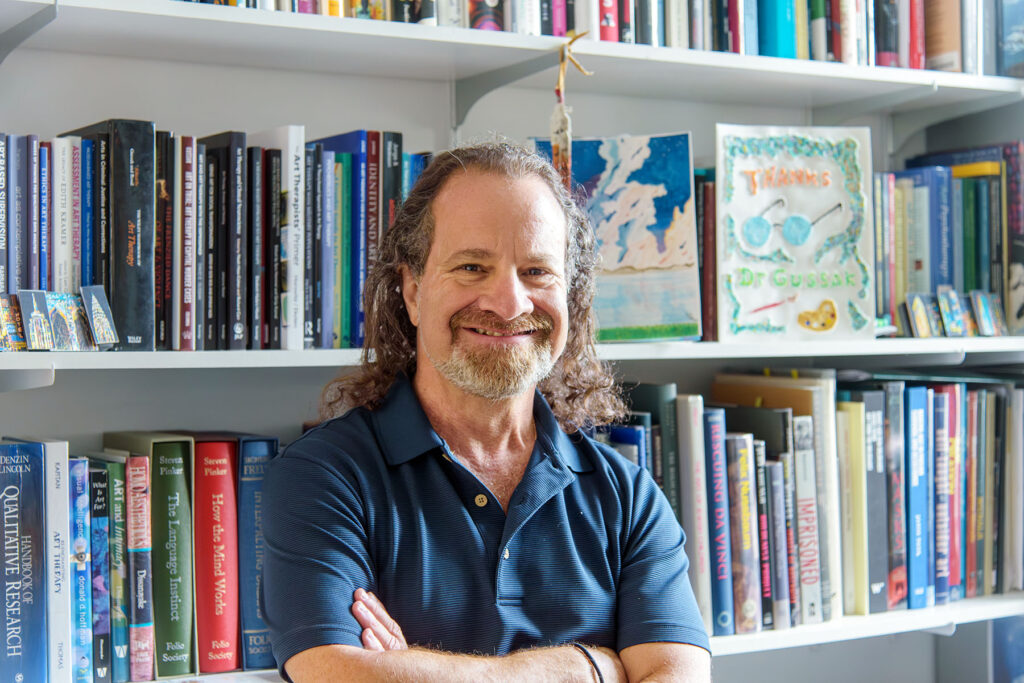
Florida State University is launching a new institute in August that will use the arts to support rehabilitation and healing in correctional settings.
The Institute for the Arts and Art Therapy with the Imprisoned (AATI) will bring together artists, therapists, educators and incarcerated individuals to expand access to art therapy, create new educational programs and support research in the U.S. and internationally.
“The establishment of the Institute for the Arts and Art Therapy with the Imprisoned reflects Florida State University’s unwavering commitment to harnessing the power of education and creativity for meaningful therapeutic healing,” said FSU Provost and Executive Vice President for Academic Affairs James Clark. “By bringing together artists, educators and those impacted by incarceration, we are building bridges of understanding and offering transformative opportunities that extend far beyond our campus. This institute stands as a testament to our belief that the arts can inspire hope, foster healing and enrich communities both locally and globally.”
Sponsored by the Office of the Provost and housed within the College of Fine Arts, the institute will be led by Dave Gussak, a renowned art therapy expert who has dedicated more than 30 years to transforming correctional environments.
“The creation of this institute is a significant milestone for FSU and the field of art therapy,” Gussak said. “It represents a collective vision finally coming to fruition — a hub of interconnection where all of these wonderful people who are doing this work already can collaborate and learn from one another. By bringing together creative minds from around the world, we’re not only advancing scholarship and practice but also building a supportive community that champions the transformative power of the arts both within and beyond correctional settings.”
Decades of research have shown that art therapy isn’t just a creative outlet — it’s a catalyst for lasting change in correctional settings.
In a recent study of 308 incarcerated individuals across nine Florida institutions, participants who engaged in art therapy showed a 53% reduction in violent disciplinary reports and a 64% decrease in time spent in seclusion compared to periods when they were not receiving services. In addition, 46% of participants experienced fewer disciplinary infractions overall, with notable improvements in emotional regulation, educational engagement and personal transformation. The results varied based on institution, including some services provided in Closed Management Units.
“The creation of this institute is a significant milestone for FSU and the field of art therapy. It represents a collective vision finally coming to fruition — a hub of interconnection where all of these wonderful people who are doing this work already can collaborate and learn from one another. By bringing together creative minds from around the world, we’re not only advancing scholarship and practice but also building a supportive community that champions the transformative power of the arts both within and beyond correctional settings.”
— Dave Gussak
Gussak has taught in the art therapy program at FSU for almost 25 years and has also served as the chairperson for the university’s Department of Art Education. He has worked as an art therapist in prisons and forensic facilities for over 30 years and is an honorary lifetime member of the American Art Therapy Association.
AATI will focus on several initiatives, including the development of postgraduate certificates for art therapists and artist facilitators, as well as a certificate program for incarcerated individuals.
“We are excited to offer these certificate programs, which will not only enhance the professional development of art therapists but also empower those who are incarcerated to become art facilitators themselves,” Gussak said.
In addition to the educational programs, AATI is partnering with the Chicago-based organization Creative Prisons Project to launch the International Journal for Creativity Inside,
the first academic journal dedicated to creative and therapeutic arts in prisons. The journal will feature contributions from leading experts in the field, including clinicians, educators, artists both inside and outside of carceral institutions, and will serve as a resource for practitioners and researchers alike.
“The arts and art therapy have the power to transform lives, and this institute will be at the forefront of that transformation,” said Sara Scott Shields, associate dean for academic affairs in the College of Fine Arts. “We are committed to creating a safer and more supportive environment for those inside correctional facilities, and we believe that art can play a crucial role in that process.”
The institute will also host symposia and international conferences to further the dialogue on the importance of the arts and art therapy in correctional settings. These events will bring together artists, educators and researchers to share their insights and experiences.
“This institute represents an important development for the College of Fine Arts and for Florida State University,” said Dean James Frazier. “It builds on the long-established research and practice of Dr. Gussak, while expanding opportunities for engagement and impact. This initiative strengthens FSU’s role in advancing the contributions of the arts and health to communities near and far.”
For more information, visit aati.fsu.edu.


